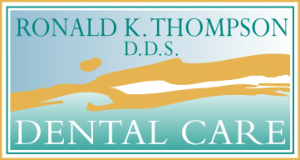- What Sugar Does to Teeth
- What Is Sugar Sensitivity?
- How Sugar Damages Teeth
- Tips for Sensitive Teeth After Eating Sugar
- Long-Term Solution: Dental Care And A Healthy Diet
- Treatment for Sensitive Teeth
- Bacteria and Food Buildup
- Excessive Oral Fluid
- Visit Your Dentist At East Valley Care Dental Care So You Can Enjoy Your Treats
When you overeat sugar, especially fructose (fruit sugar), your teeth may feel some mild to severe sensitivity. This sensitivity is known as dental caries or cavities. High-sugar diets also increase the risk of gum disease, tooth decay, and erosion.
If you have sensitive teeth from eating too many sugary foods, you probably wonder why that is and what you can do about it. This article explains everything you need to know about sensitive teeth caused by sugar so you can take preventative action without cutting out sweets entirely.
Keep reading to learn more about why it’s important to avoid sugar if you have sensitive teeth and how you can reverse this condition.
What Sugar Does to Teeth

Sugar is a significant cause of tooth decay, also known as cavities. When left untreated, cavities can become dental caries or a hole in the tooth. Caries are caused by bacteria in your mouth that feed off sugary foods and drinks.
This process creates acid, which causes the enamel on your teeth to erode. The enamel of your teeth is responsible for protecting your teeth from harmful substances, bacteria, and decay.
So, the more you consume sugary foods, the more bacteria there will be in your mouth, which can cause damage to your teeth.
What Is Sugar Sensitivity?
If you have a high-sugar diet, you may notice your teeth becoming more sensitive. This sensitivity typically manifests as a painful feeling in the teeth and gums when eating hot or cold foods.
It could also cause discomfort after drinking something carbonated or acidic. If you have sensitive teeth, you may notice the problem more often as you age.
This condition is usually caused by a buildup of plaque and tartar on your teeth. As these substances build up on your teeth, they become more porous, allowing bacteria to enter and cause damage. This will lead to cavities, gum disease, and tooth loss when not treated immediately.
How Sugar Damages Teeth
Sugar is terrible for your teeth, mainly because it promotes the growth of bacteria. As the bacteria in your mouth feed on the sugar, they produce acids that attack your teeth and cause cavities. Sugar also breaks down the minerals in saliva.
Saliva is what naturally washes away food particles from your teeth. When the minerals in your saliva are gone, the food particles left in your mouth are more likely to stick to your teeth and cause damage.
If you consume a lot of sugar, you increase your risk of developing dental caries and periodontal disease, an infection of the gums and the tissue surrounding the teeth. If you have periodontal disease, you are more likely to have tooth loss too.
Tips for Sensitive Teeth After Eating Sugar
If you have sensitive teeth after eating sugary foods, you can avoid making the problem worse with a few easy tips. To avoid dental caries and gum disease, taking care of your teeth and gums is essential. This means regularly visiting the dentist and maintaining good dental hygiene habits.
For quick relief after eating sugary foods, you can:
Rinse your mouth with water.
This will help to remove the food particles from your teeth faster.
Add baking soda to the water.
This will add a bit of extra cleaning power to the water, leaving your mouth clean and healthy.
Long-Term Solution: Dental Care And A Healthy Diet
While your teeth are temporarily sensitive, avoiding eating too many sugary and other foods that can cause sensitivity is essential. Be sure to drink plenty of water to stay hydrated and eat foods that naturally fight tooth decay and promote dental health.
These include apples, carrots, and grapefruit. Of course, it’s also important to floss and brush your teeth daily. A healthy diet is essential in the long run but doesn’t replace regular oral hygiene. In most cases, sensitivity is treatable with a few easy lifestyle changes.
By reducing the amount of sugar you consume daily, you can help reverse the damage sugar has done to your teeth and gums.
Treatment for Sensitive Teeth

If your sensitivity to hot and cold temperatures and sugary foods doesn’t go away after changing your diet, it could be a sign of an underlying condition. To determine the exact cause of your sensitivity, your dentist will likely recommend a thorough oral examination.
They will also likely recommend a treatment plan customized to your specific needs. Treatment options for sensitive teeth include:
Using a specialty toothpaste
Some toothpaste contains baking soda or potassium nitrate, which can help reduce sensitivity.
Changing your toothbrush
An old toothbrush can wear down the bristles, contributing to sensitive teeth. Make sure to go for a soft-bristled toothbrush to avoid wearing down your gums.
Sugar is Acidic
Sugar is a carbohydrate that breaks down into acids once the body metabolizes it. The pH level of the fluid in the mouth causes tooth sensitivity. Normal saliva keeps the pH within a normal range, but when you consume sugary foods, the bacteria in your mouth will feed on the sugar in the food and create acids. The acids will lower the pH level of your saliva, causing tooth sensitivity in the process.
Bacteria and Food Buildup
Food buildup and bacteria in the mouth can lead to tooth sensitivity. This is one of the leading causes of gum disease and cavities.
The bacteria in the mouth feed on the sugar in food, which can cause tooth sensitivity. According to the American Dental Association, brushing and flossing after every meal can help prevent bacteria buildup and sensitivity overall.
Excessive Oral Fluid
When experiencing increased oral fluid, you’re more susceptible to tooth sensitivity. Excessive oral fluid can be caused by medical conditions, such as heart disease or hyperthyroidism. Oral fluids can also be increased if you have diabetes and are on insulin.
Visit Your Dentist At East Valley Care Dental Care So You Can Enjoy Your Treats
If you notice that your teeth are sensitive after eating sugary foods, you must visit your dentist at East Valley Dental Care immediately. At the heart of our dental clinic is a team of friendly experts committed to your ultimate comfort and oral health.
We see each patient as a distinct person and adapt each therapy to your particular requirements. As part of our commitment to giving immediate, customized care to every patient, we wish to promote patient communication. Please know that we are here to offer excellent patient care and that we cherish the faith you have put in us.
Feel free to click here if you’d like to learn more about all our services. You can click here if you have decided to book an appointment with us. Lastly, if you have any questions, contact us at (480)-890-2811.





